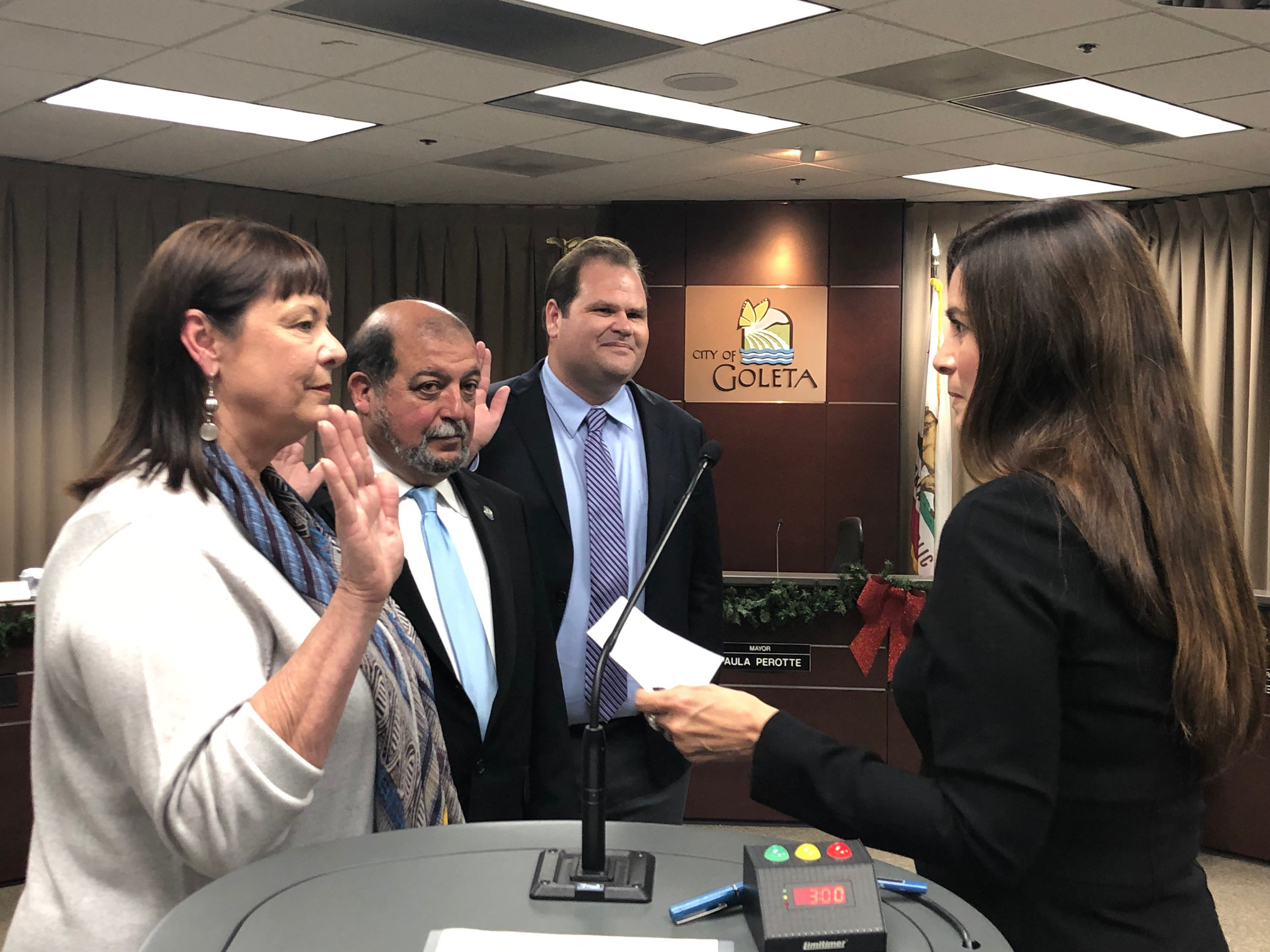
Laughter and applause filled the Goleta City Council chambers Wednesday evening as the packed room heard speakers say “come back soon” to an outgoing councilmember and City Clerk Deborah Lopez swear in the newly elected members. November’s voters kept Roger Aceves on the dais and added James Kyriaco as councilmember, both of whom ran unopposed, and they voted in Paula Perotte as mayor over Michael Bennett. Councilmember Kyle Richards was unanimously chosen to be mayor pro tempore by the newly installed council. Unexpectedly, though, the night belonged to Michael Bennett.
Actually elected Goleta’s mayor in 1993 before there was a city, Bennett received farewell gifts — a train clock produced a “wow!” and a smile — and accolades for his many years as a councilmember and longer service as a firefighter. Most speechmakers recognized the history Bennett had participated in and influenced, from new train service and the envisioned station to the victory of denying a renewal for the Venoco marine terminal. To a man and woman, each speaker praised Bennett’s memory for history, which “sure as heck” proved to be accurate, marveled Councilmember Roger Aceves. Many described the asset Bennett’s historical recall proved to be, especially on lobbying trips to Sacramento or D.C., but when his turn came, Bennett spoke of his concern for the future.
“We live on a very narrow shelf,” Bennett observed, “there’s not a lot of room.” He acknowledged there were differences of opinion, “That’s what democracy’s all about,” and decided aloud — “What the heck, I’m leaving” — to address the gorilla next to the room: UCSB. Speaking in part to the county and state representatives in the audience, as well as his colleagues, Bennett warned that when the university’s long-range development plan ended in 2025, another one was due, but that Goleta couldn’t sustain another giant expansion. “UCLA, they could add 5,000 and you wouldn’t even notice they were there,” he said. But with 32,000 people in Goleta and only 200,000 on the South Coast, more UCSB staff, faculty, and students created a serious impact, Bennett warned, while simultaneously acknowledging the “blessings” of the university’s high-tech and biomedical offshoots. “There is a limit,” he said of the area’s habitability, pledging to stay involved, perhaps in response to the many who hoped Bennett would continue his longtime connection to the city’s internal workings.
For her part, Paula Perotte, Goleta’s first elected mayor, spoke of her goals for the city in global terms, expressing the need “to take care of this city for the next generation, as others did for us” and the desire to “push back” on climate change. Along with the problem of the city’s best and brightest having to move away for housing they can afford or for better jobs, were the disappointments that came with development; Perotte advocated for remedies like better standards, of not putting a setback at the minimum or building heights at the maximum. Participation by her citizens was also on the new mayor’s mind, looking out to a chamber not often as full as it was Wednesday night. Attend council meetings, speak out, and raise your voices, she urged, and express your opinions: “The Goleta we want is the Goleta we’ll get.”

 on Google
on Google 

